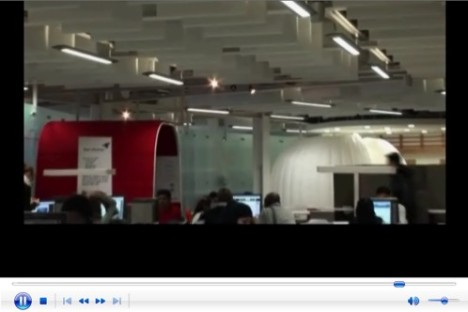Today I have been looking at more e-books. The sites I looked at were mostly offering text downloads and many offered free options. This is not a complete or definitive list but they are the ones I like, were easy to access and I especially liked those that could add something extra eg annotating and commentating and some offer more for a reading group discussion/study. Our students all have laptop computers and I would confidently say they also all have a smaller mobile device – most often in the form of iPods or iPhones. I am not saying they all like to read off their devices but it is becoming a much more common occurrence. There are also those who are not great readers of hard copy books who do prefer the electronic format. I have recently been given a kindle to use and it is really very easy to read from and a convenient size for carrying around. There is so much becoming available and our school library must look at how best we can connect our students to reading and literature. E-books are one answer.
The Book Glutton video: This video offers a short overview about how BookGlutton works: how to find and read books, how to use the community features and how to set up your own profile. It was updated for 2010
- BookGlutton Read books online then annotate and/or discuss them with others. You can sign up for an account and make some decisions about what you’d like to read and who you’d like to read it with. You can either choose a book from our public domain collection, or choose a group that’s reading something you like. Then you just jump into the reader.
- DailyLit This is a free service that brings books (also free) (particularly classic books in the public domain) as excerpts, into your inbox in convenient small messages that can take less than 5 minutes to read. This is not just an option for your computer, it also works perfectly well on whatever PDA you may have. Sometimes there’s a small charge for the e-book (usually a modern book) but there are plenty in the free category.
- Google Books Google are working on an agreement that will offer access to 3 categories of books. 1. Out-of-copyright books: This agreement doesn’t affect how out-of-copyright book are offered. Book Search users can read, download and print these titles. 2. In-copyright but out-of-print books Out-of-print books aren’t actively being published or sold so it can be hard to find copies held in a library or used bookstore. When this agreement is approved, every out-of-print book that they digitize will become available online for preview and purchase, unless its author or publisher chooses to “turn off” that title. 3. In-copyright and in-print books: In-print books that publishers are still actively selling. This agreement expands the online marketplace for in-print books by letting authors and publishers turn on the “preview” and “purchase” models that make their titles more easily available through Book Search.
- International Children’s Digital Library The ICDL Foundation’s goal is to build a collection of books that represents outstanding historical and contemporary books from throughout the world. Ultimately, the Foundation aspires to have every culture and language represented so that every child can know and appreciate the riches of children’s literature from the world community. The simplest way to use the ICDL is to just read a book. Pick one of the featured books from the home page or search for books using one of the search mechanisms. The reader can then read – for free and anonymously. You can also create an account to keep a bookshelf of books you like and set various personal preferences.
- Internet Archive Text Archive Download free books and texts. The Internet Archive Text Archive contains a wide range of fiction, popular books, children’s books, historical texts and academic books. This collection is open to the community for the contribution of any type of text, many licensed using Creative Commons licenses.
- Planet eBook Classic literature in PDF format.. Free eBooks to download
- Project Gutenberg Project Gutenberg is the first and largest single collection of free electronic books, or eBooks. Michael Hart, the founder of P/G, invented eBooks in 1971 and continues to inspire the creation of eBooks and related technologies today.
- Project Gutenberg Australia This site produces books in electronic form and makes them freely available to the public in accordance with Australian copyright law, usually in plain text. Hosts a number of specialised Australian collections, including a Library of Australiana, Australia’s Greatest Books., Australian Explorers & Australian History.
- Read Easily Uses Project Gutenberg and is aimed at the visually impaired, this web site allows you to change the fonts and colours to make the books more legible.
- World Public Library Use the eBook Finder to find the PDF eBook you are looking for and download free books and texts. The World Public Library Association Collection shelves more than 750,000 PDF eBooks in more than 100 languages. The mission of the World Public Library’s Acquisition Department is to add new eBooks 24/7 to the shelves. The Internet Archive Text Archive contains a wide range of fiction, popular books, children’s books, historical texts and academic books. This collection is open to the community for the contribution of any type of text, many licensed using Creative Commons licenses.
World Public Library video
Filed under: Library2.0, literature, Reading, Web2.0 | Tagged: books, classics, digital age, downloads, ebooks, literature, on-line text | 1 Comment »







